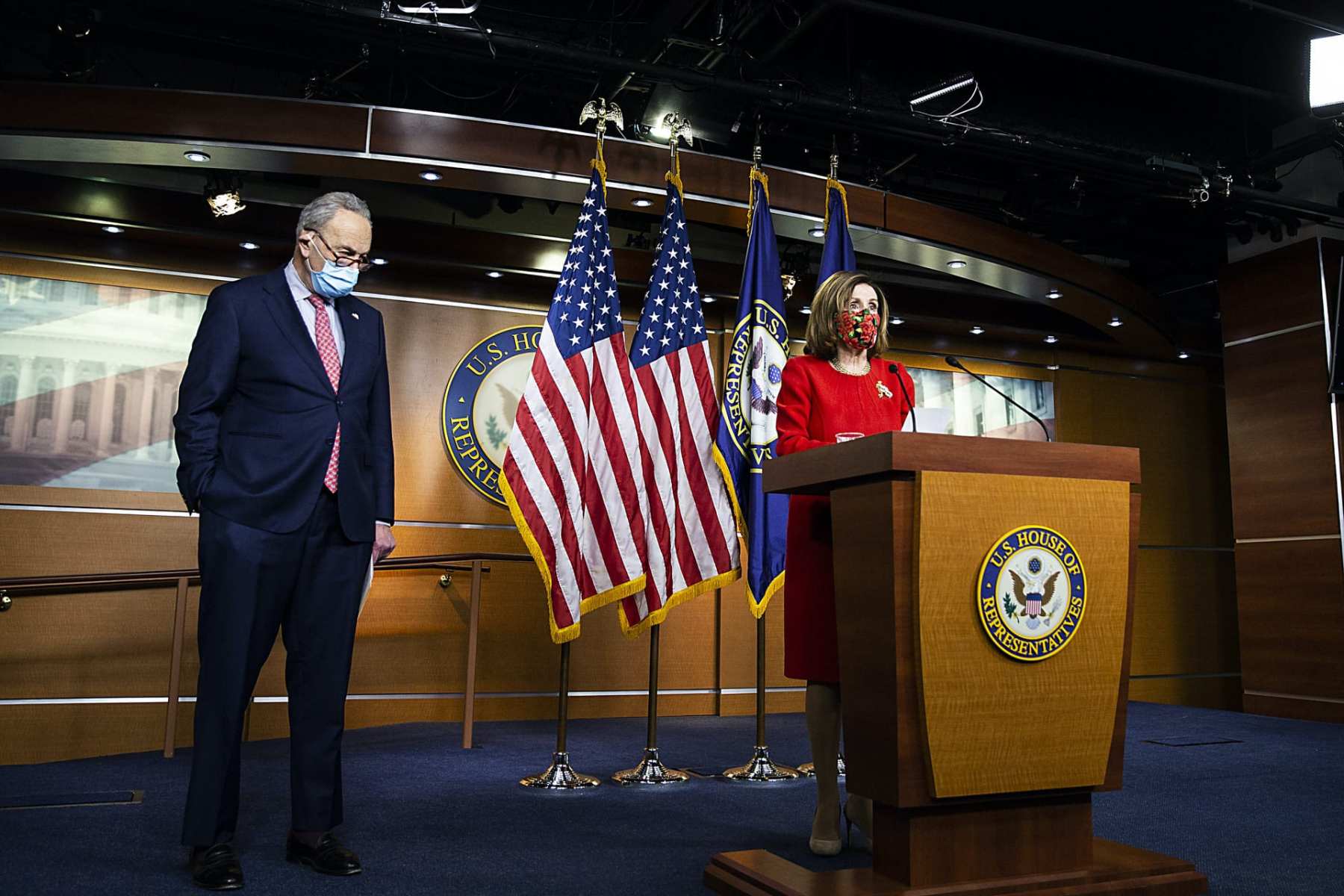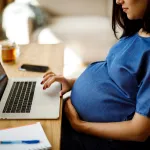Congress is expected to vote Monday night on a long-awaited stimulus package, but experts worry the new legislation won’t undo much of the damage the pandemic dealt to women, who have already emerged as the people most harmed by the virus’ economic fallout.
The $900 billion package, which includes $600 checks for most Americans and a $300 federal unemployment bonus, has several measures to address many issues that disproportionately affect women — including tax credits for employers that offer paid sick and family leave, $10 billion for child care, and $13 billion in SNAP and child nutritional benefits.
Those could provide some desperately needed relief for women across the country, especially with many of the pandemic benefits authorized in the Families First Act from March set to expire at the end of 2020. But many experts worry the bill doesn’t go far enough. At a minimum, they said, it will require a substantial follow-up relief bill after President-elect Joe Biden is sworn in next year and the Georgia run-off elections determine which party controls the Senate.
“This bill is, at best, with respect to women and child care and family obligations, helping people tread water for a little while longer,” said Vicki Shabo, a senior fellow for paid-leave policy and strategy at New America, a D.C.-based think tank. “What women need is a robust policy response in the next bill.”
The paid leave benefit would replace a mandate implemented last spring and set to expire at the end of the month. The previous mandate, passed in March, stipulated that employers with fewer than 500 employees must provide up to 10 days paid sick leave, targeted for people affected by COVID-19. It also required those companies to provide up to 10 weeks paid family leave for people who had to care for a child because in-person school or child care was no longer available. Health care employers were not required to provide either benefit, and the Department of Labor also exempted employers of businesses with fewer than 50 people from the paid family leave benefit.
Advocates had been calling for Congress to expand the paid leave benefits to include groups exempted in March. (Both health care workers and frontline jobs are disproportionately held by women.) Research also shows that the sick leave benefits from March helped curb the spread of COVID-19.
But the new stimulus does not appear to mandate paid sick leave or family leave and is far smaller than what lawmakers previously passed, a change that will hit women — and particularly working mothers — especially hard. In households with children, women have been more likely than men to use the paid leave benefits to stay home and manage child care and remote schooling.
It does offer tax credits for employers that make those benefits available, which means employers will have an incentive to offer those benefits, but there’s no guarantee they will actually do so.
“What this does is really just defaults to the pre-COVID status quo, where employers could choose whether or not they valued their employees enough to provide leave,” Shabo said. “The tax credit is a band-aid policy at best.”
Though the nation has begun distributing its first batches of coronavirus vaccinations, public health authorities warn that the crisis is far from over, and the economic fallout could extend into spring, summer or even fall of 2021. The absence of a robust paid leave program could have long-term implications in particular for women’s employment, experts said.
“Women are now either sole or co-breadwinners in 64 percent of families, and that’s even more so in families led by women of color,” said Pronita Gupta, the director of job quality at the Center for Law and Social Policy (CLASP), a nonpartisan anti-poverty organization. “If these co- or sole breadwinners have to make this untenable choice between caregiving and their own health or going to work, we’re going to see more women leaving the workforce because they have to take care of the families.”
In September, 865,000 women left the workforce, though in November, men dropped out at a higher rate.
The bill also puts forth $10 billion to support the nation’s child care infrastructure, which has been decimated over the past several months.
That kind of money could help facilities that haven’t been able to procure the protective gear and ventilation systems that make it safe to operate in person during the pandemic.
But $10 billion is a far cry from the $56 billion many child care experts and advocacy groups had asked for, and experts said they expect this emergency fund to run out after a month at most. That means either Congress would have to authorize more child care money, or the few centers still operating — which disproportionately are run by and employ women of color — would be at greater risk of shutting down for good.
“It falls far short in terms of the needs for this sector to weather the pandemic and come out the other side,” said Katherine Gallagher Robbins, the director of child care and early education at CLASP. “I have deeply mixed feelings about where we are landing on the child care number.”
If more child care centers close, she said, that could penalize women for years to come. Families that require affordable child care will have fewer options available, making it harder for women — who are more likely to have cut back on work due to family obligations — to reenter the workforce.
The stimulus does make a meaningful investment in addressing the nation’s hunger crisis, another area that has disproportionately hit women, and especially mothers.
More than one in four women with children has reported struggling to feed her family, and by early November, more than one in 10 mothers of kids younger than 5 reported not having enough to feed their toddlers. Research shows that when families don’t have enough to eat, mothers are often the first to go without food.
The relief bill would allocate $13 billion to increase benefits for SNAP — the Supplemental Nutrition Assistance Program — by 15 percent for six months. That would translate to about $25 each month per person in a household. It’s a meaningful benefit, hunger experts said, especially since research shows that SNAP benefits are one of the most effective policy interventions to combat hunger. But still, many said, it’s only a starting point.
The bill also makes technical legislative changes to make it easier for families with small children to qualify for Pandemic EBT — a nutritional aid program for families whose children lost access to meals provided at schools or child care facilities that have gone remote. That could especially benefit the mothers who report being unable to feed their toddlers.
“This is a necessary but neither sufficient nor long-term plan for reducing food insecurity,” said Lauren Bauer, an economics fellow at the Brookings Institution, who has researched food insecurity for mothers. “But it cannot hurt.”






